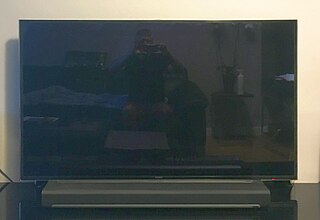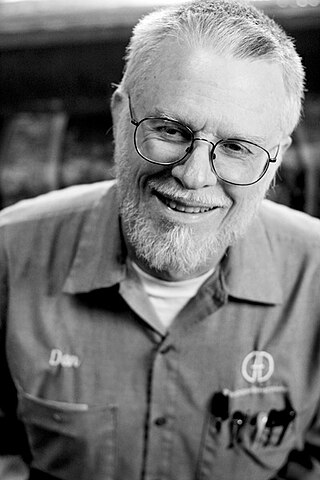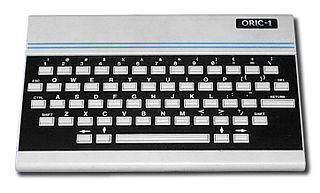Atmos may refer to:
Atmos may refer to:
In information theory, data compression, source coding, or bit-rate reduction is the process of encoding information using fewer bits than the original representation. Any particular compression is either lossy or lossless. Lossless compression reduces bits by identifying and eliminating statistical redundancy. No information is lost in lossless compression. Lossy compression reduces bits by removing unnecessary or less important information. Typically, a device that performs data compression is referred to as an encoder, and one that performs the reversal of the process (decompression) as a decoder.
A distributed system is a system whose components are located on different networked computers, which communicate and coordinate their actions by passing messages to one another. Distributed computing is a field of computer science that studies distributed systems.
Fusion, or synthesis, is the process of combining two or more distinct entities into a new whole.
Lattice may refer to:

Vehicle audio is equipment installed in a car or other vehicle to provide in-car entertainment and information for the occupants. Until the 1950s, it consisted of a simple AM radio. Additions since then have included FM radio (1952), 8-track tape players, cassette players, record players, CD players, DVD players, Blu-ray players, navigation systems, Bluetooth telephone integration, and smartphone controllers like CarPlay and Android Auto. Once controlled from the dashboard with a few buttons, they can be controlled by steering wheel controls and voice commands.
Vector most often refers to:
Connect may refer to:

Dolby Laboratories, Inc. is a British-American technology corporation specializing in audio noise reduction, audio encoding/compression, spatial audio, and HDR imaging. Dolby licenses its technologies to consumer electronics manufacturers.
QS may refer to:
A clock is an instrument for measuring time.

Atmos is the brand name of a mechanical torsion pendulum clock manufactured by Jaeger-LeCoultre in Switzerland which does not need to be wound manually. It gets the energy it needs to run from temperature and atmospheric pressure changes in the environment, and can run for years without human intervention.
T is the twentieth letter of the Latin alphabet..
A is the first letter of the Latin and English alphabet.
Manufacture Jaeger-LeCoultre SA, or simply Jaeger-LeCoultre, is a Swiss luxury watch and clock manufacturer founded by Antoine LeCoultre in 1833 and is based in Le Sentier, Switzerland. Since 2000, the company has been a fully owned subsidiary of the Swiss luxury group Richemont.

Dolby Headphone is a technology developed by Lake Technology (Australia), that later sold marketing rights to Dolby Laboratories, sometimes referred to as Mobile Surround, which creates a virtual surround sound environment in real-time using any set of two-channel stereo headphones. It takes as input either a 5.1 or a 7.1 channel signal, a Dolby Pro Logic II encoded 2 channel signal or a stereo 2 channel signal. It sends as output a 2 channel stereo signal that includes audio cues intended to place the input channels in a simulated virtual soundstage.

A soundbar, sound bar or media bar is a type of loudspeaker that projects audio from a wide enclosure. It is much wider than it is tall, partly for acoustic reasons, and partly so it can be mounted above or below a display device. In a soundbar, multiple speakers are placed in a single cabinet, which helps to create stereo sound and surround sound effect. A separate subwoofer is typically included with, or may be used to supplement, a soundbar.

Dan Dugan is an American audio engineer, inventor, and nature sounds recordist. He was the first person in regional theatre to be called a sound designer, and he developed the first effective automatic microphone mixer: the automixer. Dugan's sound design work was acknowledged in 2003 with a Distinguished Career Award by the United States Institute for Theatre Technology, and in 2020 with an Emmy Award for technology relevant to remote working. In 2021 he was awarded Fellowship in the Audio Engineering Society.
Qube Cinema Technologies is an Indian company operating in film and television technology. It provided digital non-linear editing and digital cinema sound to the Indian market in the 1990s. The company then began work in digital cinema products and deployment during the early years of the century.

Oric was the name used by UK-based Tangerine Computer Systems for a series of 6502A-based home computers sold in the 1980s, primarily in Europe.
Dolby Atmos is a surround sound technology developed by Dolby Laboratories. It expands on existing surround sound systems by adding height channels, allowing sounds to be interpreted as three-dimensional objects with neither horizontal nor vertical limitations. Following the release of Atmos for the cinema market, a variety of consumer technologies have been released under the Atmos brand, using in-ceiling and up-firing speakers.